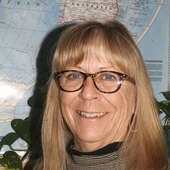- Research tips and McCook Brick Company- solid as a brick (12/16/24)
- Big Give appreciation and some railroad characters (11/15/24)
- George Randel becomes a landowner, gets married, and takes in a Buffalo Bill show (9/20/24)
- The memoirs of George F. Randel, early settler of Red Willow County (9/12/24)
- Vietnam War Memorial honors Nebraskans who served (6/13/24)
- McCook business promotions - just prior to 1893 stock market crash (5/30/24)
- Shall we dance? Meet you at the Gayway (12/8/23)
Childhood didnít last long in early America
Friday, July 21, 2017
A little story first about one of my childrenís great grandfathers, Adam Baker, as told to me by his daughter, Dorothy (Baker) Roth: Adam immigrated over to the United States with his father and step-mother. Apparently the relationship between Adam and his fatherís second wife was strained and as soon as they disembarked from the ship and passed through customs, Adam approached a police officer on the street and inquired as to whether he had to go with his father to Michigan or if he could refuse. The officer asked how old he was, and upon hearing that he was 18, answered that this was America and at 18 he was free to go where ever he wished. So Adam, at 18, set off for McCook, Neb., and made his home there, going to work for the railroad, marrying and raising four children. (Hopefully my memory has served me well with the details, but I donít believe that Adam ever looked back and regretted his decision.)
In turn, just to connect the dots, Adam was one of the men who trained my father when he hired out on the railroad and was held in high esteem by my dad. Isnít it funny how lives become entwined? Two men are connected by their job and respect for each other, and they end up being tied together by family also.
In the 1600s, London had an abundance of children roaming the streets who seemed to have no ties to family or friends. Similar to the ďOrphan TrainsĒ that took children off the streets in American cities, ships took these children off the streets in London. The circumstances were quite different however because in the 1600s, these children, ranging from age 6 to 18, were brought under orders by the English Privy Council. These orders gave the Virginia Company permission to use whatever force necessary to force the children onto the ships for the journey to the Virginia Colony struggling to survive, but severely lacking a labor force, in America.
The early southern colonies were the farming colonies in the New World and as such were providing marketable products which were to be shipped back to England for profit to the investors. More than half of everyone who came to these colonies in the 1600s came as indentured servants, and most were what we consider now to be children.
Draconic as it may seem, even parents apprenticed out their children when they reached the ripe old age of 10 or more but you have to remember that in those days, there was usually a new mouth to feed in the family every year and unless the family had land with which to produce enough income to support their children, they had no other options. Children who were born to unmarried mothers were more often than not taken from the mother when no longer being breast fed and sent to be trained for service.
The New England colonies were mostly settled by families, but the southern ones were made up of a high percentage of young men who worked as indentured servants until their contract was completed. Since more than half died before they turned 20, few ever saw the freedom envisioned when they came to the New World.
In October, Southwest Nebraska Genealogy Society is presenting an Exposition on Adoption and DNA. Iím eager to see how some of the DNA results can be tied to a possible match of parentage or siblings in some of my family members who were adopted. The morning session will be on adoptive searches and information available and the afternoon session will be on DNA. Mark Oct. 14 on your calendar and watch for our signup sheets.

